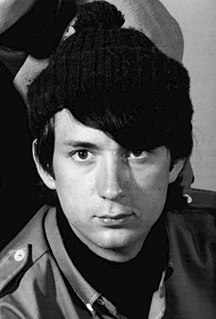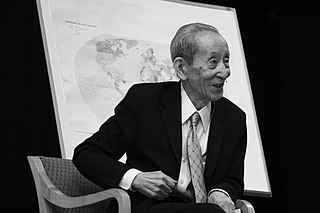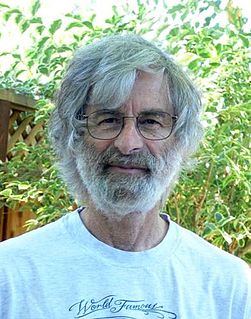A Quote by Edsger Dijkstra
The tools we use have a profound and devious influence on our thinking habits, and therefore on our thinking abilities.
Related Quotes
A most important, but also most elusive, aspect of any tool is its influence on the habits of those who train themselves in its use. If the tool is a programming language this influence is, whether we like it or not, an influence on our thinking habits.... A programming language is a tool that has profound influence on our thinking habits.
Believing isn't thinking, but we've been programmed to believe that believing is thinking. To use our intelligence to think means we're keeping the energy active, we're thinking, we're really using the power of our intelligence in a thinking way. But when we've been programmed to believe, we're no longer thinking, because energy flows.
There is a race between the increasing complexity of the systems we build and our ability to develop intellectual tools for understanding their complexity. If the race is won by our tools, then systems will eventually become easier to use and more reliable. If not, they will continue to become harder to use and less reliable for all but a relatively small set of common tasks. Given how hard thinking is, if those intellectual tools are to succeed, they will have to substitute calculation for thought.
Awareness is not the same as thought. It lies beyond thinking, although it makes no use of thinking, honoring it's value and it's power. Awareness is more like a vessel which can hold and contain our thinking, helping us to see and know our thought as thought rather than getting caught up in them as reality.
So what is the difference between "power thinking" and "positive" thinking? The distinction is slight but profound. To me, people use positive thinking to pretend that everything is rosy, when they really believe that it's not. With power thinking, we understand that everything is neutral, that nothing has meaning except for the meaning we give it, and that we are going to make up a story and give something it's meaning.
It is so much easier to rest contented with what we have already acquired than to change ever so slightly those routine but profound habits of thought and feeling which govern our life, and by which we live so blissfully. This mental inertia is, perhaps, our greatest enemy. Insidiously it leads us to assume that we can renew our lives without renewing our habits.
By immersing ourselves with our consciousness in a supersensible world, we now learn a new kind of thinking, a new life of mental pictures, one that is not dependent on the nervous system in the way ordinary thinking is. We know that previously we have had to make use of our nervous system, but now we no longer need our brain.

































